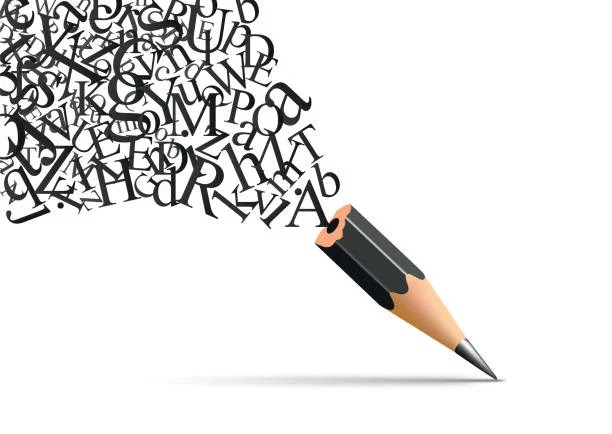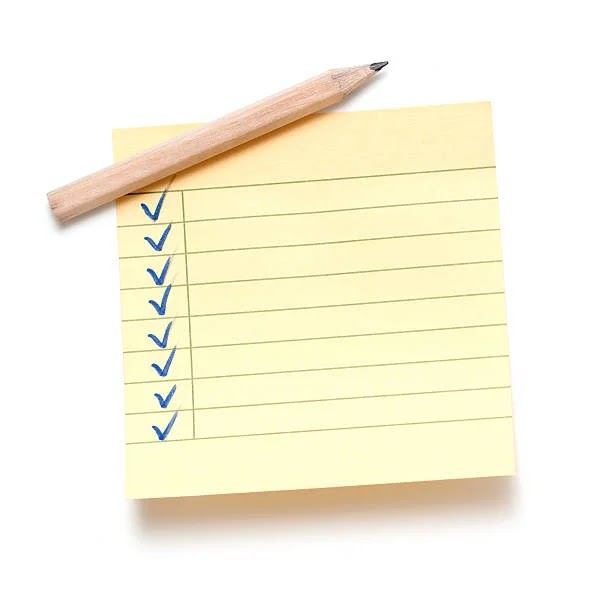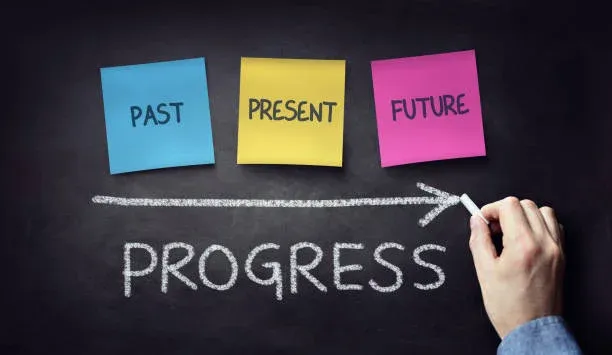Note-taking for students is the act of recording and summarizing significant information from lecturers, course reading materials, or other instructive sources to support learning and understanding.
Note-taking is an essential study skill that enables you to effectively engage with academic material and notice key ideas, facts, and bits of knowledge for later reference.
📣Table of content
- What are the purposes of note-taking for students?
- 12 Essential Note-taking Tips for Boosting Your Cumulative Grade Point Average (CGPA)
- Understanding CGPA
- Five Straightforward Keys to Boost Your Academic Performance and Increasing Your Cumulative Grade Point Average (CGPA)
- Frequently Asked Questions on 12 Essential Note-taking Tips for Boosting Your Cumulative Grade Point Average (CGPA)
- Final Thought on 12 Essential Note-taking Tips for Boosting Your Cumulative Grade Point Average (CGPA)
 |
| Source: Istock |
What are the purposes of note-taking for students?
- Comprehension: Note-taking aids students process and figuring out complex data and interpreting it into a more edible and coordinated structure.
- Retention: The act of taking notes supports memory and builds the possibility of holding basic subtleties and ideas.
- Reference: Efficient notes act as a kind of reference tool for students to review and concentrate on the material more effectively, particularly during examination problems.
- Active Learning: Note-taking keeps Students effectively drawn in with the content, preventing passive listening or reading and advancing further comprehension.
- Explanation and clarification: Students can utilize notes to write down questions or areas of confusion, which they can later look for explanations on from facilitators, tutors, lecturers, or course books.
- Planning: Notes are important while getting ready for tasks, ventures, or introductions, as they give an organized synopsis of significant information.
- Using time productively: Coordinated notes assist students with saving time while reviewing material, as they can zero in on central issues and try not to filter through broad texts.
- Communication: Notes can likewise work with conversations and coordinated efforts with peers, permitting students to share bits of knowledge and analyze how they might interpret the material.
Effective note-taking methods differ from one individual to another; however, the general objective is to catch fundamental information that makes it open and helpful for future learning and reference.
You as a student should frequently foster your own note-taking styles, consolidating procedures that suit your learning inclinations and the specific demands of your courses.
12 Essential Note-taking Tips for Boosting Your Cumulative Grade Point Average (CGPA)
1. Pick Your Style
Various subjects or learning environments might profit from various note-taking styles. Explore different avenues regarding direct notes for organized topics, Cornell notes for coordinated layouts, and idea planning or concept mapping for visual students.
Find the style that turns out best for you, upgrading your comprehension and retention of information (course materials).
2. Be Ready
Pre-reading or exploring the subject before a class equips you with the context. It assists you with understanding the material better as well as permits you to form questions or focus on things you might want to zero in on during the lecture period.
3. Listen effectively
Undivided attention goes beyond ordinary hearing. Engage with the speaker or text by seeking clarification on some pressing issues, making connections with what you definitely know, and taking note of key terms or ideas. Utilizing verbal and non-verbal signs can assist you with remaining mindful and catching essential data.
4. Organize clearly and plainly
Appropriate organization between your notes is significant. Use headings, subheadings, list items, and numbering to make unmistakable structures. An efficient format rearranges checking on your notes and grasping complex thoughts.
5. Use truncations and abbreviations appropriately
Sometimes abbreviations and symbols are convenient for accelerating note-taking. Simply be careful not to overcomplicate. Guarantee your shortenings are clear, and use symbols that sound good to you.
6. Embrace Technology wisely
Computerized devices can improve your note-taking, offering features like accessibility and distributed storage.
Notwithstanding, don't depend entirely on innovation and technology. Be endure to balance dynamic learning guarantees that you outwit the two universes.
7. Remain careful
Careful note-taking includes zeroing in on catching the main subtleties while sifting through the unimportant. Profound breathing activities or active involvement can assist you with remaining mindful during note-taking.
8. Review regularly
Your notes go about as indispensable study material. Reliably getting back to them develops your memory and helps you with integrating the material into your long-term knowledge.
Incorporate them into your study schedules and use them as a sort of point of view for projects or tests.
9. Use Visual Aides
Visual elements like charts, blueprints, and assortment coding can further develop how you can decipher complex thoughts. At the point when relevant, feel free to integrate these visuals into your notes to make the material more understandable.
10. Cooperate with others and discuss
Sharing notes and group discussions with peers can offer arranged perspectives and empower agreeable learning. Participating in discussions allows you to examine alternate points of view and broaden how you can decipher the material.
11. Reflect and Interact
Make a relationship between new information and your previous knowledge. Taking into account how the new material fits into your spread-out grasp helps you make a clearer and more knowledgeable framework.
12. Be consistent
Consistency is the method for mastering note-taking. Standard practice, even in little augmentations, is more powerful than irregular, serious note-taking sessions.
Make note-taking a normal part of your way of learning for improved results. By executing these valuable tips, you can refine your note-taking abilities and streamline your opportunity for growth, whether you're a student or a lifelong learner.
Understanding CGPA
The total grade point average, generally known as CGPA, remains a crucial measurement in the domain of schooling and academics.
This mathematical portrayal embodies students' general academic performance across an assigned period.
It is determined by averaging grade focuses procured in individual courses, it utilizes a normalized scale, frequently set at 4.0 in schooling systems like that of the US and presently in Nigerian universities.
📢 Suggested reading: 12 Tactics For Building a Career Early in Life as a Student
The Imperative Relevance of Cumulative Grade Point Average
The significance of a CGPA is diverse and can't be perceived.
- Assessment: A CGPA fills in as a ubiquitous benchmark, efficiently assessing a student's educational fitness. Its capacity to embody a whole academic journey into a single figure lends it a comprehensive nature.
- Progress Checking: A powerful measure, CGPA takes into consideration the ceaseless following of a student's academic development. It offers experiences that contribute to the consistency of learning and accomplishment over the long-term period.
- Guard for Amazing Open Doors: Many high-level courses, grants, and monetary guide programs specify CGPA requirements. It works as the doorway to such open doors, determining qualifications.
- Competitive Advantage: In the expert circle, an exemplary CGPA remains a striking resource while applying for internship or temporary positions, grants, and business possibilities. It frequently fills in as a fundamental sign of diligence and capability.
- Development of Inspiration and Objectives: Beyond simple numeric portrayal, CGPA powers individual inspiration. It urges students to define higher academic goals and objectives, cultivating a significant sense of identity and achievement.
- Knowledge for Instructors: For teachers and lecturers, CGPA offers a focal point for the viability of educational philosophies and the academic journey of their students. This feedback is instrumental in refining teaching methodologies and adjusting to the current learning needs of the students.
- A Forerunner to long-time planning: CGPA assumes a crucial role in planning long-term professional career techniques. It may be the determinative component for chasing after a postgraduate education or gaining admission to a profession where a vigorous academic establishment is basic.
Basically, CGPA rises above its mathematical indication. It arises as a significant tool for measuring academic achievements, setting desires, and working with informed choices in the academic and vocation journey.
Whether as an indicator for students, a focal point for teachers, or a guide for employers, the CGPA is a basic reference point for assessing academic greatness and potential. It remains a unique power in the academic circle, having an extraordinary impact on those who recognize its importance.
Five Straightforward Keys to Boost Your Academic Performance and Increasing Your Cumulative Grade Point Average (CGPA)
The following are five direct keys to increasing your academic performance and expanding your Cumulative Grade Point Average (CGPA) as a student:
- Be Smart when it comes to time management: Effectively dealing with your time is a distinct advantage. Make an everyday timetable that saves you time, enables you to concentrate on time, stays aware of classes, and leaves space for unwinding. Remaining coordinated and on target has a tremendous effect.
- Dynamic Learning: Jump into your examinations effectively. Rather than passive reading or tuning in, seek clarification on some pressing issues, join conversations and discussions, and plan to completely figure out ideas. This approach assists with understanding as well as boosting memory.
- Regular Review: You have to say last-minute cramming. All things considered, make a propensity for exploring your class notes and materials reliably. Setting time apart for necessary corrections are more successful method for recollecting and grasping the topic.
- Look for Help: Go ahead and connect for help when required. Whether it's talking with lecturers, utilizing coaching administrations, or contemplating with schoolmates, looking for help early can have a major effect on your grades.
- Balance Matters: It's not all about jacking the book. Keep a reasonable way of life by dealing with your well-being through great dietary patterns, exercise, and enough rest. A healthy lifestyle decreases pressure and assists you with staying focused on your studies.
By integrating these basic principles, you can give your CGPA a huge boost while making your academic process smoother and more fruitful.
Frequently Asked Questions on 12 Essential Note-taking Tips for Boosting Your Cumulative Grade Point Average (CGPA)
How can I calculate my CGPA for 3 semesters?
To calculate your CGPA for three semesters, follow these steps: Add up the grade points you earned in all courses for the three semesters. Add up the total credit hours for these courses. Divide the total grade points by the total credit hours. This will give you your CGPA for the three semesters. CGPA = (Total Grade Points) / (Total Credit Hours) This calculation will provide your cumulative GPA for the specific three semesters you are interested in.
What to do if my CGPA is low?
If your CGPA is low, you can take several steps to improve it: Identify the courses or semesters where your grades were low and consider retaking those courses if possible. Consult with academic advisors for guidance and create a study plan. Seek help from tutors or academic support services. Manage your time effectively and maintain a consistent study routine. Stay motivated and set clear academic goals.
How can I increase my CGPA in the last semester?
To increase your cumulative GPA, you can: Improve your grades in current and future courses. Re-take courses in which you received a low grade to replace the previous grade (if your school allows grade replacement). Seek tutoring or academic assistance for challenging subjects. Manage your time effectively and maintain a consistent study schedule. Stay organized and take thorough notes in classes. Participate in class discussions and ask questions when you don't understand something.
How can I increase my CGPA after graduation?
Once you've graduated, your CGPA (Cumulative Grade Point Average) is typically considered final. You cannot change it after graduation. However, you can pursue further education, such as a master's degree, where your performance in the new program will be considered.
How can I increase my cumulative GPA?
To increase your cumulative GPA, you can: Improve your grades in current and future courses. Re-take courses in which you received a low grade to replace the previous grade (if your school allows grade replacement). Seek tutoring or academic assistance for challenging subjects. Manage your time effectively and maintain a consistent study schedule. Stay organized and take thorough notes in classes. Participate in class discussions and ask questions when you don't understand something.
Final Thought on 12 Essential Note-taking Tips for Boosting Your Cumulative Grade Point Average (CGPA)
In your main goal of strong note-taking, ponder these 12 basic principles. Set up notes clearly, use abbreviations wisely, and embrace technological advancement cautiously. Focus on important points, review your notes regularly, and make use of visual aids.
Always cooperate with peers, build connections, and above all, be consistent in practice. Your journey to better learning begins with note-taking, a fundamental ability for educational and mastery accomplishment. Like any skill, it improves with continuous practice.
With each note, you push toward additional comprehension and knowledge. Embrace this journey with responsibility, and you'll open new horizons, work on your understanding, and build a really encouraging future.
If you are blessed and inspired by reading this, kindly share it with others and on your social media handles. Don't forget to subscribe to our YouTube channel for more educational video content. Also, feel free to follow me on LinkedIn, Facebook, Twitter, and Instagram for tips on personal development-related content.

.jpeg)
.png)

.png)
.png)





